#Department of Trade and Industry (DTI)
Text
I Love Israel: Israel and the Philippines sign business agreement
I Love Israel: Israel and the Philippines sign business agreement
The relationship between Israel and the Philippines moved forward some more as they recently signed a major agreement related to investments and economic cooperation, according to a news report by The Jerusalem Post.
To put things in perspective, posted below is the excerpt from report of The Jerusalem Post news report. Some parts in boldface…
Finance Minister Avigdor Liberman and Filipino…
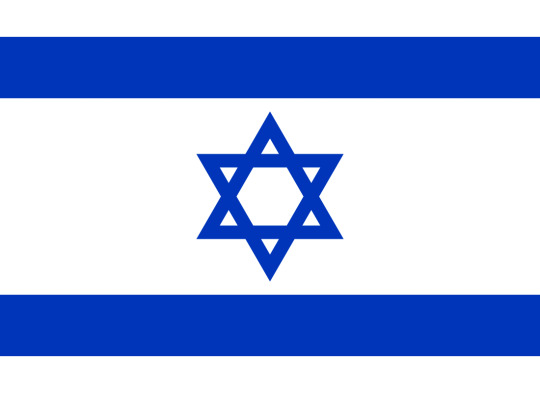
View On WordPress
#Avigdor Liberman#Be the fearless and aggressive church of Lord Jesus#business#business innovation#business news#capitalism#Carlo Carrasco#Christians United for Israel (CUFI)#Department of Trade and Industry (DTI)#diversity#Embassy of Israel#finance#God#God&039;s Plan#Heavenly Father#Holy Spirit#I Love Israel#Inclusion#investments#investors#Israel#Israel in the Philippines#Israel-Philippines#Israeli#Israelites#Jerusalem#Jesus#Jesus Christ#Jesus is Lord and Savior#journalism
2 notes
·
View notes
Text
MVRK Simulations, ROC PH named as winners of DTI’s IDEA and ADVanCE for Creatives Programs
22 April 2024, Philippines – The Department of Trade and Industry, through the Competitiveness and Innovation Group (DTI-CIG), in collaboration with startup accelerator Launchgarage, celebrated the innovation and drive of local creative startups as they awarded the winners of its Incubation, Development, and Entrepreneurial Assistance (IDEA) and Accelerating Development, Valuation, and Corporate…

View On WordPress
#dti#dti demo day#dti programs#dti-cig#filipino creatives#mvrk simulations#pcida#philippine creatives#roc ph
0 notes
Text
MVRK Simulations, ROC PH named as winners of DTI’s IDEA and ADVanCE for Creatives Programs
22 April 2024, Philippines – The Department of Trade and Industry, through the Competitiveness and Innovation Group (DTI-CIG), in collaboration with startup accelerator Launchgarage, celebrated the innovation and drive of local creative startups as they awarded the winners of its Incubation, Development, and Entrepreneurial Assistance (IDEA) and Accelerating Development, Valuation, and Corporate…

View On WordPress
0 notes
Text
Philippines Launches Startup Innovation Drive

The Philippine government, in collaboration with U.S.-based accelerator Plug and Play, has initiated a national platform dedicated to nurturing startups in key sectors like IT-BPM, migrant worker services, and electronics assembly.
Bridging Gaps and Seizing Opportunities
Ever wondered what propels a startup to success? In the bustling heart of Manila, a transformative initiative takes root, aiming to elevate the Philippines into a major hub for innovation in Asia.
The Department of Trade and Industry (DTI), in a significant move, has partnered with the globally recognized accelerator, Plug and Play, to launch a national platform specifically for startups in the IT-BPM, migrant workers, and electronics assembly sectors.
This pioneering platform seeks to identify and fill existing gaps within these industries, while simultaneously opening doors to new opportunities.
By linking industries and fostering innovative solutions, the initiative aims not just to support but to catapult Filipino startups onto the global stage.
Accelerating Growth through Strategic Partnerships
"The Philippines’ young, educated, and tech-savvy population positions our country as a rising startup hub in Asia, propelled by government and private support,"
remarked DTI Secretary Alfredo Pascual during the announcement. This collaboration with Plug and Play promises to intensify efforts, enhancing the country's competitive edge in the tech industry.
Annually, the program plans to curate at least 40 promising startups, providing them with mentorship, access to critical networking sessions, and co-working spaces sponsored by the DTI. These resources are invaluable, offering fledgling companies the tools they need to thrive.
Jojo Flores, co-founder of Plug and Play Philippines, highlighted the uniqueness of this accelerator program,
"There’s nobody else doing it—only the Philippines will be doing it," he said.
His confidence stems from the backing of a robust network, with access to at least USD10 billion worth of funding, aimed at developing sector-specific products that not only cater to local needs but also have the potential for global market penetration.
Sector-Specific Innovation and Global Aspirations
The focus areas of the initiative are diverse, spanning food and agritech, artificial intelligence, and cybersecurity, among others. This breadth ensures that the Philippine startup ecosystem remains at the forefront of technological advancement and industry needs.
Significantly, the success of Plug and Play in launching giants like PayPal and Dropbox bodes well for the future of the Philippine startups selected for this program.
With Manila alone boasting over 1,000 startups valued at approximately USD3.5 billion, the growth potential is immense.
A Vision for the Future
As the program unfolds, the main goal remains clear: to protect and add value to the Philippines' services industry by developing bespoke products.
"Once we are successful in doing that, we can resell the same products to the global market," added Flores.
This initiative is not just about funding and mentorship—it's about creating a sustainable ecosystem that supports innovation and entrepreneurship tailored to the unique challenges and opportunities in the Philippines.
By investing in the right areas and partnering with global leaders like Plug and Play, the DTI is setting the stage for a thriving future, where Filipino startups not only succeed locally but also make significant impacts worldwide.
Final Thoughts
As this platform kicks off, all eyes are on the Philippines, watching as it takes a bold step forward in defining its place in the global startup landscape.
The journey is just beginning, but the promise is undeniable: a brighter, more innovative future for the Philippine service industry and beyond.
Sources: THX News & Philippine News Agency.
Read the full article
#DTIstartuppartnership#electronicsstartupsPhilippines#Filipinostartupecosystem#IT-BPMindustrygrowth#migrantworkerstartups#PhilippinesPlugandPlay#Philippinesservicestartups#Philippinestechinnovation#startupacceleratorprogram#startupinvestmentopportunities
0 notes
Text
How important is the Halal Certification

Introduction to Halal Certification in Philippines
Halal Certification in Philippines. The Philippines, a Southeast Asian nation recognized for its beautiful seashores and vibrant culture, boasts a Muslim population of around 5%. For these Filipinos, adhering to Islamic nutritional recommendations, encompassed through the term “Halal,” is a middle factor in their faith. Halal certification in Philippines has emerged as an important component in ensuring meals and other merchandise comply with those spiritual requirements. This, in turn, fosters agreement with and empowers Muslim clients to make knowledgeable buying decisions.
Why is Halal Certification Important within Philippines?
In a country recognized for its spiritual tolerance, Halal certification gives a large number of blessings to various stakeholders:
For Muslim Consumers: Certification offers peace of thought, guaranteeing that merchandise adheres to their non secular ideals. This fosters agreement with and strengthens the bond between customers and corporations.
For Businesses: Halal certification unlocks access to a huge and money-making global Halal market worth over $2 trillion. It complements brand popularity inside the Muslim network, fosters customer trust, and bolsters brand popularity. Additionally, certification streamlines supply chain control and opens doors for exporting to Muslim-majority countries in Southeast Asia and beyond.
For the Food Industry: The emphasis on ethical sourcing and hygienic practices in course of Halal certification in Philippines can contribute to a typical improvement in exceptional meals. This can benefit all consumers, irrespective of their faith, who are searching for secure and ethically produced meal products.
The Evolving Halal Landscape in Philippines
The Philippines has witnessed a huge upward thrust in demand for Halal-compliant merchandise in recent years. The government actively supports the Halal Certification in Philippines industry, spotting its capacity for financial growth. The Philippine Halal Certification in Philippines Export Development and Promotion Act of 2016 installed a countrywide framework for Halal certification, ensuring adherence to international requirements. Several approved Halal certifications our bodies perform inside the Philippines, catering to the growing demand for licensed merchandise, Halal Certification in Philippines.
How to Obtain Halal Certification in Philippines
The process of acquiring Halal certification in Philippines includes numerous steps:
Selecting a Reputable Halal Certification Bodies in Philippines:
The Philippines has a developing quantity of accepted Halal certification bodies in Philippines. Choosing the proper one is essential. Factors to keep in mind include the body’s revel in, understanding, and reputation in Philippine Muslim network. Here are a few distinguished Halal Certification Bodies in Philippines:
Factocert is the best Certification providers in Philippines, The Bureau of Product Standards (BPS) under the Department of Trade and Industry (DTI)
Initial Application and Documentation: Contact your chosen certification body to provoke the utility procedure. You’ll be required to publish complete documentation detailing your manufacturing procedures, elements, and providers.
Facility Audit: The certification frame will conduct a thorough audit of your manufacturing centers to ensure compliance with Philippine Halal requirements. This audit covers factors like storage, handling, gadgets, and hygiene practices.
Product Testing: Random samples of your products may be despatched for laboratory checking out to affirm the absence of non-Halal substances or contaminants.
Certification Issuance: Upon a successful crowning glory of the audit and product trying out, the certification frame will be difficult for a Halal certificate, valid for a specific period. Regular audits can be performed to ensure ongoing compliance with Halal requirements.
Why Factocert is Your Ideal Partner for Halal Certification in Philippines
Factocert stands out as a leading company that provides Halal certification consultancy services within Philippines. We offer a complete variety of answers to guide businesses through the full certification system with efficiency and ease. Our group of Halal experts possesses an in-depth understanding of Islamic Shariah standards and the unique Halal policies of the Philippines.
Benefits of partnering with Factocert in your Halal Certification journey within the Philippines:
Streamlined Process Navigation: We simplify the application technique, ensuring a clean and efficient experience that adheres to Philippine Halal guidelines.
Expert Guidance and Support: Our consultants offer complete support and steerage at some point in entire certification adventure. This includes navigating complex policies and addressing any demanding situations that can arise specific to the Philippines.
Local Market Expertise: We understand the particular requirements and nuances of the Philippine Halal atmosphere, making sure your certification aligns with nearby regulations.
Global Recognition: Factocert collaborates with diagnosed Halal certification bodies within the Philippines, ensuring your certification is valid worldwide. This opens doors to export possibilities beyond the Philippines.
Conclusion
Halal certification performs a critical position in the Philippines, fostering trust, selling moral practices, and unlocking get admission to a good sized and loyal purchaser base. By partnering with a reputable consultancy like Factocert, companies in the Philippines can navigate the certification manner efficiently and optimistically. This lets them cater to the growing call for Halal-compliant services and products, ensuring their fulfillment in the Philippines’ dynamic and evolving Halal industry.
Additional Considerations:
This article provides a well-known overview. Specific necessities and procedures can also vary.
Why Factocert for ISO Certification in Philippines
We provide the best ISO consultants in Philippines, Who are very knowledgeable and provide the best solution. And to know how to get ISO certification in the . Kindly reach us at [email protected]. ISO Certification consultants work according to ISO standards and help organizations implement ISO certification in with proper documentation.
For more information visit: Halal Certification in Philippines.
0 notes
Text
DTI unveils top 5 startup finalists of ADVanCE for Creatives Program
The Department of Trade and Industry (DTI) has officially announced the top five startup finalists for the Accelerating Development, Valuation, and Corporate Entrepreneurship (ADVanCE) for Creatives Program on March 21, 2024, at the Launchgarage Innovation Hub in Quezon City.
Selected from an initial pool of eight growth-stage startups, the top five finalists underwent assessments focused on…
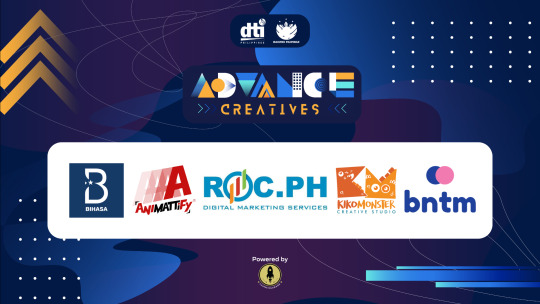
View On WordPress
0 notes
Text
Marketing Abaca Fiber: Insights from Caraga Region Farmers
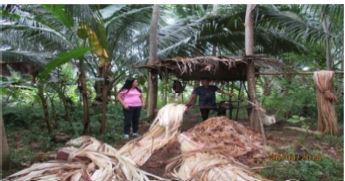
Abstract
The study was conducted to determine the marketing practices and the profitability of establishing Abaca in the Caraga Region. A total of One Thousand Two Hundred Fifty-Six (1256) farmers, Seventy-Seven (77) traders, and three (3) processors were interviewed as the respondents of the study. Their names were obtained from the Philippine Fiber Development Authority (PhilFIDA) and the Municipal Agriculture Office (MAO) of the concerned municipalities of the Region. Data gathering activities included interviews and focus group discussions (FGDs), and stakeholder forums were conducted to validate and gather additional information. The said Focus Group Discussion and Stakeholders’ Forum were attended by the farmers, officers in various cooperatives, traders, representatives from the regional line offices, the Department of Trade and Industry (DTI), Department of Agriculture (DA), Department of Agrarian Reform (DAR) Municipal Agriculture Offices (MAO), Academe, Provincial Agriculture Officer. In the Caraga Region, abaca traders are situated in Agusan del Norte 28 or 36.36%, Agusan del Sur 25 or 32.47%, Surigao del Sur 24 or 31.17% and no traders in the province of Surigao del Norte. The one who sets the price for abaca fiber is the trader/buyer 99.28 % and only 0.71% sets by the farmer. The means of contacting buyers are referrals by the farmers 32.96%; traders will come to the farmers 27.46%, recommended by the Local Government Unit (LGU) 23.88%, and traders who are known by the cooperatives 15.68%. The buyers’ requirements in buying abaca fibers are quality 63.69% and volume 36.30%. Traders engage in buying Abaca for more than 15 years or 38.5%; 1-5 years, 30.12%; 11-15 years, 18.07% and 6-10 years, 13.25%. The means of transporting abaca fiber is through motorcycles 43.37% and hired trucks 56.61%. The estimated monthly volume sold is 1- 5 metric tons or 92.77% and 6 – 10 metric tons. The farmer’s Abaca fibers through Barangay or Municipal Traders, Cooperatives/Consolidators, Baling and Grading Establishment, Processors, and exporters. The issues and concerns for the traders are the following: classification and grading of fiber, cheating abaca bundles where stones inserted to increase weights, abaca fiber not adequately dried, and piles of Abaca are mixed with other fibers. The profitability of abaca farming for 1 hectare /year is the average of P48,000 for a typical farm, while for a good farm is P115,200 – 192,000.

Introduction
The "Manila hemp," known internationally for its world-class fiber, continues to be one of the priority agricultural commodities of the Department of Agriculture (DA). The Philippines supplies more than 87.4 percent of the total abaca fiber market and earns more than $111.33 million in global abaca trade annually (PCA, 2017).
In 2022, as per PhilFIDA data, Caraga ranked third among the top abaca-producing regions in the country with an estimated 10,000 metric tons (MT) of fiber production, next to Bicol Region (1st) and Davao Region (2nd).
Abaca is in great demand in the world market today because of its lucrative value in industries such as making security papers, paper money, ropes, insulators, and other handicrafts. The most important part of the Abaca is the stalk which is the source of the fiber. Abaca fiber is superior to all other natural fibers because of its great strength and its resistance to the action of water. It is three times stronger than cotton, the most potent natural fiber.
The country’s overall fiber production is estimated at 62,640.63MT, remaining the top abaca-producing country, supplying 85% of the fiber demand in the world.
Pulp, which accounts for 69.2 percent market share of the abaca exports, has reported earnings of $ 79.4 million or an increase of 11.7 percent. Abaca cordage, which grabbed a market share of 10 percent, fell to $ 11.4 million. Fiber crafts exports also fell 67.3% to $3.7 million (The Philippine Star, 2016). The pulp manufacturing industry is the leading end-user of abaca fiber, followed by cordage manufacturing and fiber craft industry. It was reported that due to the increasing use of abaca fiber in specialty paper manufacturing, the demand for fiber among pulp manufacturers is constantly surging, and the trend is expected to prevail in 2014-2019. Among the leading abaca fiber suppliers, Ching Bee Trading Corporation dominates the market in the Philippines, followed by Tag Fibers, Inc. and Selinrail International.
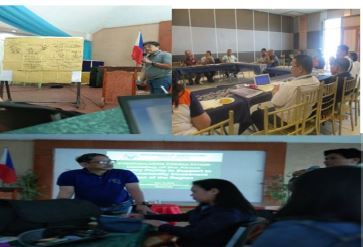
For the past half-decade, the Abaca industry helped boost the country’s economy from its export earnings with an annual average of P4.7 billion, mainly in the Visayas and Mindanao Islands. Abaca fibers are cultivated across 176,549 hectares of farmlands by over 122,758 farmers. Moreover, in recent years, it has been perceived that aside from the substantial contributions of Abaca to the economy, its utilization can also provide numerous ecological advantages (www.philfida.da.gov.ph, 2019).
With the continuing development of the fiber craft industry in the Philippines, the abaca fiber market has been witnessing a boost due to the growing demand for gifts, toys, and housewares. Moreover, increasing consumer inclination for lifestyle products is further expected to strengthen the growth trend for abaca crafts in the coming years. There are only two significant exporters of abaca fiber in the world – the Philippines and Ecuador, with the Philippines accounting for over 80% of the global production of abaca fiber. In the Philippines, the abaca plant is cultivated across 130 thousand hectares of land by over 90 thousand farmers.
Asia Pacific was the largest market for abaca fiber in terms of production and consumption over the past few years, and the trend is expected to continue over the forecast period. The Philippines, the world's largest abaca producer, hold a significant market share in Asia Pacific. A considerable portion of produced abaca fiber in the Philippines is internally consumed, while a substantial amount is exported to various countries, including U.S., Japan, and other European countries. The Philippine government supports initiatives to increase high-quality abaca fiber production levels for domestic consumption and export. This is expected to strengthen its market positioning further and open market opportunities for new players over the next seven years (Erie News, 2019).
Thus, this undertaking is critical to fill the data gaps of the recently conducted Value Chain Analysis of the Commodity in the Region. Profiling tells us the actual scenario of how many abaca farmers engaged in this commodity, what support programs they availed in our present administration, what they need, and what other issues and concerns so that our government can also make some intervention programs for our abaca industry.
Major end-user industries of abaca fiber include paper and pulp, fibercraft, and cordage. The paper and pulp industry is the largest end-user industry for abaca fiber, followed by cordage manufacturing and fiber craft industry. Increasing the application scope of abaca fiber in specialty paper manufacturing is likely a critical factor driving demand for abaca fibers in the paper & pulp industry. The rising market for cordage in industrial applications, including the production of ropes for ships, is expected to boost its demand over the next seven years.
Source : Farmers practices in marketing Abaca fiber in Caraga Region
1 note
·
View note
Text
On April 20th, 2021, Department of Trade and Industry of the Philippines (DTI) has issued the notice of initiation of an investigation on the application for an anti-dumping duty on cement from Viet Nam (AD case no. AD01-2021). Request for investigation on application for an anti-dumping is the most international trade remedy under WTO Agreement which Vietnam company should hire local international trade lawyers to respond to authority in the Philippines.
0 notes
Text
With Jose T. Joya Gallery Curator and UP Cebu Asst. Professor of Fine Arts Jay Jore. The Joya Gallery is a student-run gallery under the Fine Arts program within the College of Communication, Art, and Design at UP Cebu. Since its inauguration in 2016, the gallery has been dedicated to serving as a platform for fostering collaboration and synergy between the local community of talented artists, the academic sphere, and the general public.
One of the remarkable initiatives of the Jose T. Joya Gallery is the establishment of its very own Fabrication Laboratory, also referred to as FABLAB. This endeavor results from a partnership between UP Cebu and the Department of Trade and Industry (DTI). The FABLAB is specifically designed to cater to the needs of various target beneficiaries, including Micro, Small, & Medium Enterprises (MSMEs), start-ups, makers, students, and other individuals in the creative disciplines.
The primary objective of the FABLAB is to provide these beneficiaries with unparalleled access to cutting-edge computer-based and digital design and manufacturing methods. Through advanced technologies and comprehensive training programs, the FABLAB empowers individuals to explore and harness the potential uses of a wide range of digital machinery. By equipping them with the necessary skills and knowledge, FABLAB enables them to transform their innovative ideas into tangible creations.
The Joya Gallery has become a center of creativity and innovation. Its strategic location in Lahug, near universities, government agencies, hotels, and shopping malls, makes it easily accessible and highly visible to students, teachers, artists and visitors. As a result, the gallery attracts a diverse range of individuals who are passionate about art, culture, and creativity.
0 notes
Text
Shopee, DTI partner for e-commerce onboarding of Halal food sellers
As part of its commitment to make e-commerce more inclusive and accessible to everyone, Shopee, the largest e-commerce platform in the country, has partnered with the Department of Trade and Industry (DTI) to onboard Halal food sellers onto its platform. This initiative aims to support Micro, Small, and Medium Enterprises (MSMEs) and make Halal products accessible online for sellers and consumers. It also helps Shopee’s goals to empower niche businesses to grow their online presence and broaden their market.
The collaboration focuses on educating potential sellers about Shopee’s onboarding process, helping ensure a seamless experience for those entering the e-commerce platform. The onboarding sessions cover topics such as product listing guidelines, UI navigation, and business insights, equipping sellers with the tools they need to thrive in the digital market.
Halal food products comply with Islamic dietary laws that follow particular production processes. Having convenient access to these food items is essential for people with religious obligations and those who have built a preference for ethically sourced food.
“At Shopee, we are dedicated to fostering inclusivity for our sellers and consumers. Our collaboration with the DTI to onboard Halal food sellers aligns with our commitment to supporting MSMEs and providing diverse options for our users. This is another step towards empowering businesses of all kinds and sizes to thrive in the digital economy,” said Vincent Lee, Head of Shopee Philippines.
“The partnership with Shopee is a step towards enhancing the visibility of Halal products online. This collaboration will further strengthen the DTI’s commitment to promoting economic growth and ensuring that MSMEs offering Halal-certified products have the tools and resources to adapt to a dynamic market,” said Director Marievic M. Bonoan of DTI.
0 notes
Text
FARM TO MARKET INFRASTRUCTURE NATIBAWAS NA
Lantawa:
3.4 Kilometer nga Road Concreting ang hinayong natibawas diin gipunduhan kini sa Department of Trade and Industry (DTI) in partnership sa Department of Interior and Local Government (DILG), Rural Agro-enterprise Partnership for Inclusive Development and Growth (RAPID Growth) diin financed gikan sa International Fund for Agricultural Development (IFAD), Department of Public Works and…
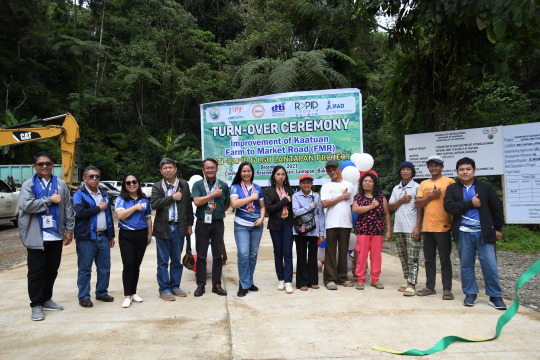
View On WordPress
0 notes
Text
DTI unveils top 5 startup finalists of ADVanCE for Creatives Program
03 April 2024, Philippines – The Department of Trade and Industry (DTI) has officially announced the top five startup finalists for the Accelerating Development, Valuation, and Corporate Entrepreneurship (ADVanCE) for Creatives Program on March 21, 2024, at the Launchgarage Innovation Hub in Quezon City.
Selected from an initial pool of eight growth-stage startups, the top five finalists…
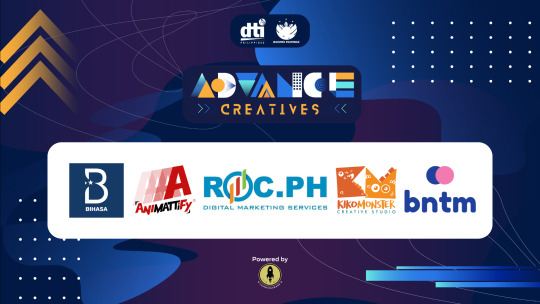
View On WordPress
0 notes
Text
DTI unveils top 5 startup finalists of ADVanCE for Creatives Program
Philippines – The Department of Trade and Industry (DTI) has officially announced the top five startup finalists for the Accelerating Development, Valuation, and Corporate Entrepreneurship (ADVanCE) for Creatives Program on March 21, 2024, at the Launchgarage Innovation Hub in Quezon City.
Selected from an initial pool of eight growth-stage startups, the top five finalists underwent assessments…

View On WordPress
0 notes
Text
Xurpas bets on AI
Xurpas Enterprise launches XAIL to guide companies in utilizing AI-powered solutions to address real business challenges.
#business
#Xurpas
Artificial Intelligence (AI) has emerged as a potential game-changer across many industries. According to the Department of Trade and Industry’s (DTI) AI roadmap, AI has the potential to boost the Philippine economy by USD$92 billion in the next six years. From revolutionizing customer experiences to streamlining operations, AI is transforming the way business is done.
Xurpas Enterprise launches…
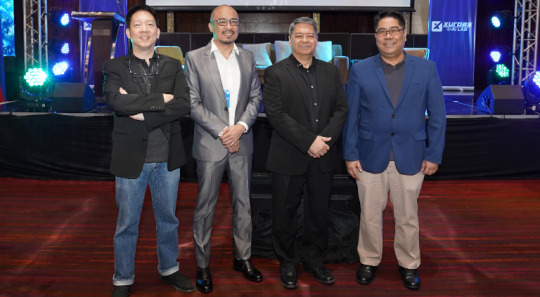
View On WordPress
0 notes
Text
Two Australian firms want to join in a thorium nuclear power project in the Philippines
Aussies pitch 40-MW thorium-fueled nuclear plant
Energy Central 11 Oct 23
MANILA -Australian firms Southern Infrastructure Pty Ltd and Kaizen ANZ Pty Ltd. want to partner with the Philippine government to bring thorium-fueled nuclear energy to the country, a venture that could mark a significant milestone in the country’s push to adopt nuclear power.
The Department of Trade and Industry (DTI)…
View On WordPress
0 notes
Text
DTI invites creative startups to jumpstart businesses with IDEA, ADVanCE programs
The Department of Trade and Industry, through the Competitiveness and Innovation Group (DTI-CIG), is looking for creative startup companies to onboard to their two programs designed to support and strengthen the creative industries in the Philippines.
The DTI-CIG, led by Undersecretary Rafaelita M. Aldaba, in partnership with startup accelerator Launchgarage, has launched the creatives edition…
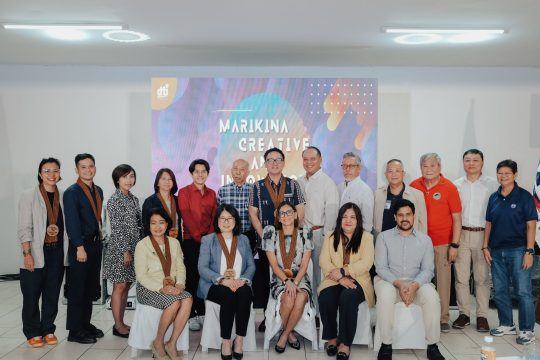
View On WordPress
0 notes